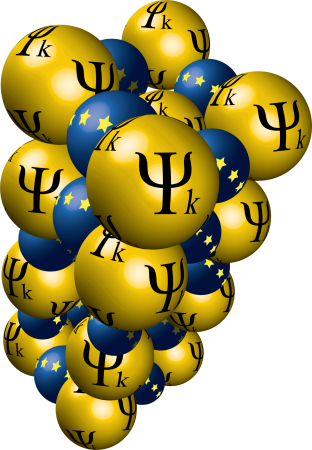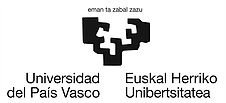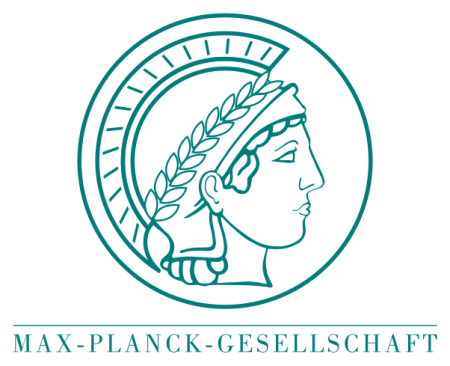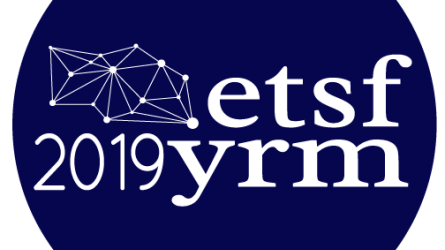
2019 ETSF Young Researchers Meeting
Descripción
El Young Researchers' Meeting (YRM) del European Theoretical Spectroscopy Facility (ETSF) es una reunión anual de las personas investigadoras que se encuentran en la primera etapa de su carrera (estudiantes de máster y doctorado y personas investigadoras postdoctorales) que trabajan en los nuevos enfoques teóricos y computacionales para estudiar las propiedades electrónicas y ópticas de los materiales.
Este encuentro ofrece a las personas investigadoras que están en el inicio de su carrera la oportunidad de compartir su trabajo, conocer los métodos teóricos más avanzados para describir las propiedades de los materiales, intercambiar ideas y establecer conexiones con otros investigadores que se encuentran en una etapa similar de su carrera. El YRM 2019 contará con cinco sesiones orales. Los temas de toda la sesión tratarán sobre los enfoques ab-initio de las propiedades de los materiales de modelado. La primera sesión versará sobre el estado fundamental del sistema y la segunda sobre los estados excitados de los sistemas atómicos, moleculares y de estado sólido. La tercera sesión versará sobre las propiedades vibratorias de los materiales. La cuarta sesión se centrará en la simulación a múltiples escalas y la quinta sesión en sistemas muy correlacionados.
La conferencia también acogerá una sesión de pósteres en la que algunas de las personas participantes tendrán la oportunidad de mostrar su trabajo en soporte gráfico y explicarlo a otras personas investigadoras de una manera menos formal. También hay programada una sesión de la industria en la que las personas que se han pasado del mundo académico al de la industria contarán a los y las participantes sus experiencias y les proporcionarán información sobre las necesidades y expectativas de la industria en relación con los físicos y físicas y las y los científicos de materiales.
Objetivos
Brindar a los participantes la oportunidad de conocer y debatir sobre la investigación con otras personas que estén en una etapa similar de su carrera.
Presentar a los y las jóvenes investigadores e investigadoras una visión más amplia de la investigación en física teórica de la materia condensada y ayudarles a encontrar el contexto de su propia investigación en ese panorama.
Ayudar a los y las jóvenes investigadores e investigadoras a desarrollar sus habilidades de presentación oral.
Realizar una introducción a los participantes sobre métodos nuevos y alternativos en la física teórica de la materia condensada. Ofrecer información sobre caminos alternativos para su carrera.
Reforzar el puente entre el mundo académico y la industria.
Proporcionar un ambiente amigable y acogedor para el intercambio científico entre personas investigadoras que se encuentren en el mismo estadio de su carrera.
Dar prioridad a la presentación oral para las personas investigadoras en sus primeras etapas.
Organizar conferencias magistrales a cargo de personal investigador no permanente más experimentado para ofrecer una visión general de la investigación de vanguardia en áreas específicas, señalando los principales obstáculos y desafíos.
Programar una sesión de la industria en la que jóvenes investigadores e investigadoras que han cambiado de carrera puedan compartir sus experiencias y mostrar las demandas y objetivos de la ciencia aplicada y la ingeniería.
ORGANIZING COMMITTEE
Maja Berovic, PhD Student, Scuola Internazionale Superiore di Studi Avanzati di Trieste - SISSA. Ruben R. Ferradás, Postdoctoral Researcher, Laboratoire de Chimie et Physique Quantiques, Toulouse, France.
Nahual Sorbino, PhD Student, Donostia International Physics Center, San Sebastián, Spain.
Dorde Dangic, PhD Student, Tyndall National Institute, Cork, Republic of Ireland.
Público objetivo al que está dirigida la actividad
- Profesionales
Colaboradores
Directoras/es

Nahual Sobrino Coll
DIPC / UPV, Física de Materiales
PhD student at Donostia International Physics Center. I belong to the Nano-Bio Spectroscopy Group and the European Theoretical Spectroscopy Facility network. I am interested in strong correlated systems, electrical and thermal transort and Density Functional Theory

Rubén Rodríguez Ferradás
Donostia Internationl Physics Center, Investigador Postdoctoral
I am PhD in Physics by University of Oviedo (Spain). I defended my thesis in February 2016. After that, I moved to Laboratoire de Chimie et Physique Quantiques in Toulouse where I am currently a Postdoctoral Researcher under the supervision of Arjan Berger and Pina Romaniello. The main topics of my research are Time-Dependent Current-DFT and magnetism in solid state systems.
Ponentes

Francesco Belli
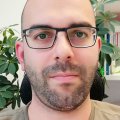
Miguel Caro
Aalto University
Miguel Caro is originally from a small town (Cartaya) in southwestern Spain. He graduated with a Physics degree from University of La Laguna, Tenerife, Spain. He then moved to Cork, Ireland, where he pursued a PhD in computational condensed-matter physics under Prof. Eoin O’Reilly at the Tyndall National Institute. His thesis work, for which he was awarded his PhD in 2013, focused on theory of III-N alloys, a material system widely used for optoelectronic applications. After the PhD, he moved to Finland, where he is a postdoctoral researcher at Aalto University since 2013 and Academy of Finland Postdoctoral Researcher since 2017. Dr. Caro’s current research interests concern the atomistic simulation of real materials, especially carbon-based materials, using a battery of simulation tools and methodologies, from density functional theory to machine learning.
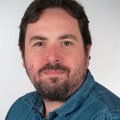
Aron Cohen
Max Planck Institute for Solid State Research
Max Planck Institute for Solid State Research, Stuttgard Aron Cohen received his Bachelor’s degree in Natural Sciences (Chemistry) from the University of Cambridge. He completed his PhD with Prof. Nicholas C. Handy before going to Duke University to carry out five years of postdoctoral research with Prof. Weitao Yang. In 2009 he returned to the University of Cambridge as a Royal Society University Research Fellow. He now works at the Max Planck Institute for Solid State Research in Stuttgart in the electronic structure theory group. His work focuses on the fundamental development of density functional theory and wavefunctions methods.
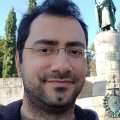
Manuel dos Santos Dias
Forschungszentrum Julich
Manuel Dos Santos did his undergraduate studies in Physics at the Faculty of Sciences of the University of Lisbon, from 2003 to 2007. He then moved to England, to work on his PhD under the supervision of Prof. Julie Staunton at the University of Warwick, from 2007 to 2011. Since 2011 he has been based at the Peter Grunberg Institut of the Forschungszentrum Julich, working with Prof. Samir Lounis. His field of expertise is in the theory of magnetism and its connection to the electronic structure of real materials. He has investigated the ground state properties of ferromagnets and other types of magnetic materials, both in bulk and in thin film form, and how they are influenced by the interrelation between the electronic and magnetic structures at finite temperature. More recently, he has focused on the properties of single magnetic atoms and small clusters on metallic surfaces, and on their dynamical magnetic excitation spectrum from time-dependent density functional theory.

Andrea Droghetti
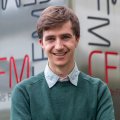
Ion Errea
UPV/EHU
Ion Errea is an Associate Professor at the University of the Basque Country and leads the Quantum Theory of Materials group at the Centro de Física de Materiales. His research focusses on the development of theoretical methods for calculating complex properties of solids, such as quantum and anharmonic effects in atomic vibrations and the electron-phonon interaction, and the application of these methods in hydrogen-based superconductors, thermoelectric materials, phase transitions in solids, nanostructures, etc. He is an ERC grantee, research associate at the Donostia International Physics Center, and member of Jakiunde.
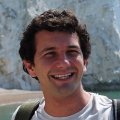
Aldo Isidori
Scuola Internazionale Superiore di Studi Avanzati di Trieste, SISSA
Aldo Isidori obtained his undergraduate Diploma in 2004 at the University of Rome, with a thesis on CP violation effects in supersymmetric extensions of the Standard Model for particle physics. He then moved to condensed matter physics during his PhD (2004-2008), also at the University of Rome, under the supervision of Profs. Massimo Capone and Claudio Castellani, working on analytical extensions of Dynamical Mean-Field Theory such as cluster and slave-particle methods. His first postdoctoral experience (2009-2013) was in Frankfurt (Germany), where he worked in the group of Prof. Peter Kopietz on functional renormalization group approaches to strongly correlated many-body systems. Later he moved to England for a second postdoc (2013-2016) at Royal Holloway, University of London, in the group of Prof. Matthias Eschrig, where he studied interface effects in superconducting heterostructures and phase transitions in graphite under strong magnetic fields. He is currently a postdoc at SISSA

Sara Isaline Laporte
Scuola Internazionale Superiore di Studi Avanzati di Trieste, SISSA
Sara Laporte graduated from the University of Auckland (New Zealand) with a double degree in Physics and Mathematics, before doing her Master's degree at Université Pierre et Marie Curie (UPMC) in Paris, specialising in condensed matter physics. She completed her PhD in 2016 also at UPMC, in the Institut de Minéralogie, de Physique des Matériaux et de Cosmochimie (IMPMC), working on the properties of water at mineral surfaces and its relevance to prebiotic chemistry. Currently she is a postdoctoral researcher at SISSA (Trieste, Italy), working on the multiscale simulations of optical properties of natural pigments, using a combination of molecular dynamics (both classical and ab-initio), enhanced sampling methods, and time-dependent density functional theory to computed excited stated and absorption spectra.

Cristina Muñoz Menéndez
Bardehle Pagenberg
Cristina Muñoz Menéndez did her undergraduate studies in Physics (2009-2013) at the University of Santiago de Compostela, Spain, to then pursue a Master (2013-2014) and a PhD (2014-2018) in Materials science, also in Santiago de Compostela. She spent her Erasmus year (2012/2013) at the Université du Maine, France, and she spent over nine months at the University of York, U.K. (2016/2017) under the supervision of Prof. Chantrell during her PhD. Her doctoral thesis, supervised by Prof. Baldomir and Dr. Serantes, consisted in performing simulations of the dissipated heat by magnetic nanoparticles in order to improve the effectiveness and the safety of magnetic fluid hyperthermia, a promising technique for cancer treatment. In November 2018 she started to work as a patent engineer at Bardehle Pagenberg’s office in Barcelona, Spain.
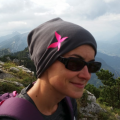
Elisa Rebolini
Institut Lau-Langevin
Elisa Rebolini is originally from the west coast of France. After finishing her undergraduates studies in Ecole Normale Supérieure de Cachan in chemistry and computer science, she joined the Laboratoire de Chimie théorique in Paris to work on her PhD under the supervision of Andreas Savin and Julien Toulouse (2011-2014) working range-separated density functional theory for the calculation of molecular excitation energies. Later she moved to the Centre for Theoretical and Computational Chemistry in Oslo where she worked with both Trygve Helgaker and Thomas Bondo Perdersen (2014-2017). Her main subject there was the development of coupled-cluster methods for periodic systems. Since september 2017, she joined the theory group of the Institute Laue-Langevin as a postdoc. She works with Marie-Bernadette Lepetit on the ab-initio treatment of magneto-electric tensors in strongly-correlated materials.
Asier Vicente
Arcelormittal
Asier Vicente received the BEng degree on mining engineering (2002) and in 2007 he received the MEng degree on Material engineering with Honors from the School of engineering of Bilbao and the MSc degree on industrial technologies by UNED (2016). Now he is developing his PhD work “New methods for Ferrous Raw Materials Characterization in Electric Steelmaking”. In 2002 he started at ArcelorMittal Sestao as steel mill shift manager, and in 2010 he moved to ArcelorMittal Basque Country R&D center, developing his work as principal investigator in the Electric steelmaking and Raw Materials characterization areas leading numerous projects in this area. Currently he is the head of the advanced steelmaking process technologies department in the Basque Country center. He also participates as an active member in several global technical committees within ArcelorMittal such as "ArcelorMittal Global expert technical committee" in the processes of electric arc furnace and secondary metallurgy.
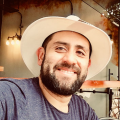
Mario Zapata
Donostia International Physics Center
Mario Zapata Herrera's background includes a degree in physics (2006) from the National University of Colombia (Bogotá), a master’s degree in Physical Sciences (2008) from Instituto Balseiro (Bariloche-Argentina), and a Master’s degree (2011) and a PhD (2016) in Physical Sciences from Universidad de los Andes (also in Bogotá). He later worked in the Theory of Nanophotonics Group led by Javier Aizpurua joined (from 2016 to 2018) at the Donostia International Physics Center (DIPC) of San Sebastian (Spain) and Currently (2018-). He is a Horizons 2020 fellow (postdoctoral researcher) at the Center for Research in Nano-Sciences CIC NANOGUNE also from San Sebastián (Spain) through an European grant and at the Francisco José de Caldas District University through the 784 call of Colciencias for postdoctoral stays.
Precios matrícula
| Matrícula | Hasta 03-06-2019 |
|---|---|
| 150,00 EUR | |
| 100,00 EUR | |
| 0 EUR |
Lugar
Centro Carlos Santamaría
Plaza Elhuyar, 2. 20018- Donostia / San Sebastián
Gipuzkoa
Centro Carlos Santamaría
Plaza Elhuyar, 2. 20018- Donostia / San Sebastián
Gipuzkoa
